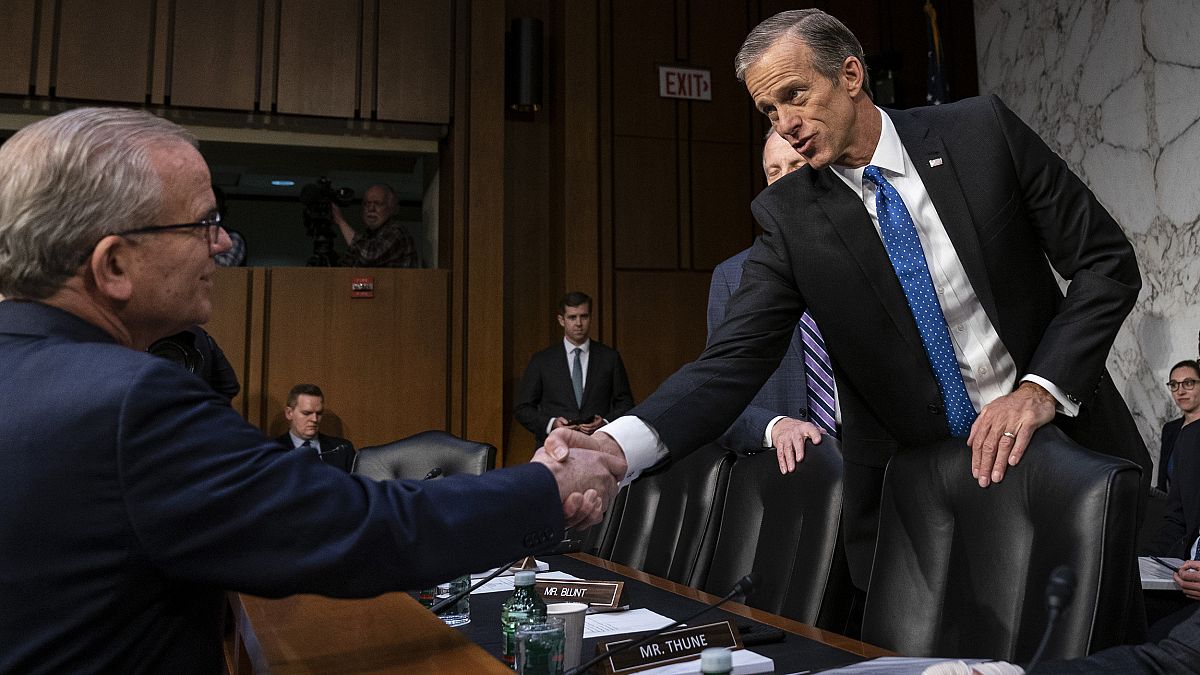The latest bipartisan legislative efforts would require major telecom companies to do a better job of authenticating calls and block "spoofers."
Lawmakers, fed up with the seemingly constant barrage of nuisance and scam calls plaguing them, their families and their constituents, have launched a bipartisan broadside against robocalls.
"I think that I'm like everybody else that has cellphones and is constantly, constantly interrupted by these nuisance calls," Sen. John Thune, R-S.D., told NBC News.
Legislative efforts underway in both the House and the Senate would go further than past measures to crack down on a problem that has become significantly worse in recent years. The efforts would ramp up penalties for violations, put the onus on major cell service providers to do a better job of authenticating calls, and offer ways to block neighborhood "spoofers," where scammers trick a caller ID into believing that a call is coming from the recipient's area code.
According to Hiya, a Seattle-based software company, Americans received a total of 26.3 billion robocalls in 2018, a 46 percent increase from 18 billion in 2017. For the Federal Trade Commission and the Federal Communications Commission, it's the subject they receive the most complaints about annually. In 2018, the FTC received more than 3.7 million robocall complaints while the FCC received 232,000 complaints regarding unwanted calls such as robocalls and telemarketing calls.
Meanwhile, improvements in technology have allowed for robocallersto target thousands of phones in an hour with minimal effort, which some critics say renders the Do Not Call Registry ineffective. Ian Barlow, the Do Not Call program coordinator at the FTC, told NBC News the list "still works well for the same job it was intended to do," but that it doesn't deter "criminals or fraudsters."
Thune's bill, the TRACED Act, was unanimously approved by the Senate Commerce Committee last month. That legislation, backed by a bipartisan group of lawmakers, would push the major telecom companies such as AT&T and Verizon to better authenticate calls so consumers know who they are coming from. Additionally, the bill would increase penalties and fines that the FCC can bring in this area.
News
Meanwhile, House Energy and Commerce Committee Chairman Frank Pallone, D-N.J., has introduced a bill that would close a legal loophole robocallers exploit, while requiring the telecom companies to provide blocking services against call "spoofers" free of charge.
Pallone told NBC News in a statement that "it's time for Congress to act."
"I hear from my constituents in New Jersey all the time about how fed up they are with robocalls," Pallone said. "It is incredibly annoying to repeatedly get unwanted calls from people you don't know and don't want to talk to."
A House Energy and Commerce subcommittee considered several bills aimed at combating this problem during a Tuesday hearing.
Rep. Mike Doyle, D-Pa., said the robocalls issue "has gotten so bad that you can watch videos of people getting robocalls while they're in the middle of making a video complaining about robocalls."
#embed-20190430-robocall-totals-mar19 iframe {width: 1px;min-width: 100%}
Thune, who oversaw a Senate subcommittee hearing on robocalls last month, said he hears examples "all the time of people who have been preyed upon, vulnerable populations being targeted by these scam artists." Thune mentioned his 99-year-old father was subjected to nuisance calls.
The scam artists, who try to get people to send money to fraudulent causes, "really are the people that we're going after," Thune said.
"And at the same time, hopefully we'll get rid of a lot of the annoying and nuisance type calls that everybody gets on their cellphone," he continued, noting that complaints about those calls "became one of the most [frequent] calls into our office and things you would hear people talking about in conversation."
As his legislation awaits a Senate floor vote, Thune said though his team hasn't spoken to President Donald Trump personally, he's confident the president would sign it into law if passed.
"I think they share the same concerns that we have, and probably hear from a lot of the same people that we do," Thune said.
